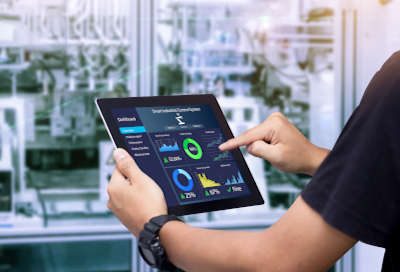As statewide stay-at-home orders lapse, more and more businesses aim to reopen. For a fair share of these businesses, remote technology has been a godsend. For the businesses that cannot reopen yet, being able to monitor your IT infrastructure while you are out of the office is extremely important to the sustainability of your remote access solutions. Today, we’ll discuss monitoring your infrastructure.
Grasping IT Infrastructure Monitoring
The strategy of infrastructure monitoring covers quite a bit of ground. It includes ensuring that the physical infrastructure is running how it is supposed to, remote access from workers still stuck at home, how much bandwidth is being used, and how all the software that runs your business is functioning.
In this case, hardware failures are the real priority. Each hardware failure, whether it is from failed components, power fluctuations, or whatever else, creates downtime. This downtime is extraordinarily expensive, and at a time when nearly every business is looking to control costs, it could have a very negative impact on your business’ operational performance.
Best Practices of Infrastructure Monitoring
Let’s discuss how monitoring your infrastructure, or having Cima do it for you, is really a no-brainer for your business:
You’ll Want to Identify the Most Important Parts of Your Infrastructure
We don’t have to tell you that there are IT systems that you need more than you need others. In fact, if you and your staff don’t actively use some infrastructure, there are strategies you can use to further reduce your utility costs. Most businesses, however, rely on every bit of their IT. For organizations that do, a hierarchy of IT systems will have to be created. You will also want to ensure that any system you need is properly backed up, its environment is right (uninterrupted power, HVAC, dust, etc.), and that any monitoring systems that you typically use are functional.
The Alerts Go to the Right People
You will want to ensure that the people that need to know a system is functioning improperly are notified. This means setting up alerts that route to specific members of your team. The strategy in doing this is to quicken the remediation process should some systems go down.
Check In Periodically
While you can have your IT monitored from a remote location, you will want to send someone over periodically to get a feel for how the system, in total, is running. That includes workstations, networking hardware, and any other devices your business relies on. You will also want to routinely update and patch your monitoring system to ensure that it is running smoothly.
If you would like more information about how Cima Solutions Group can effectively monitor your business’ infrastructure while your team is working from home, call us today at (972) 499-8260.


Leave a comment!